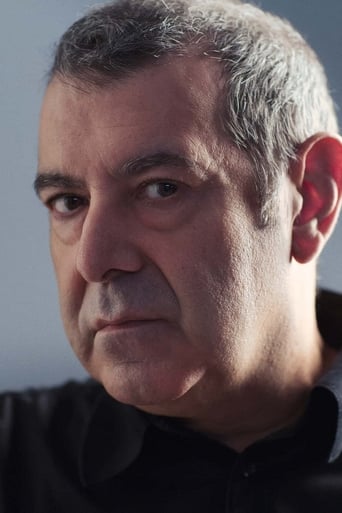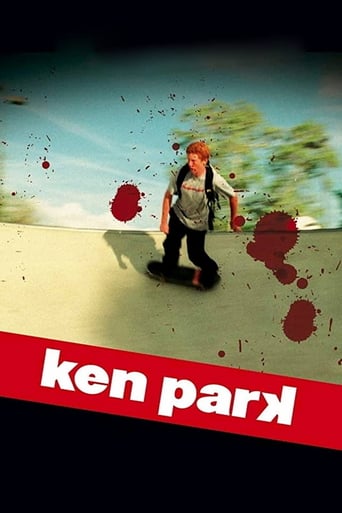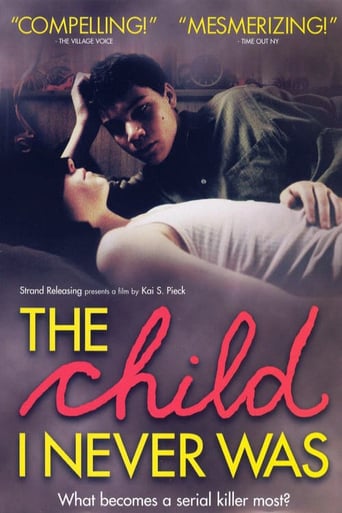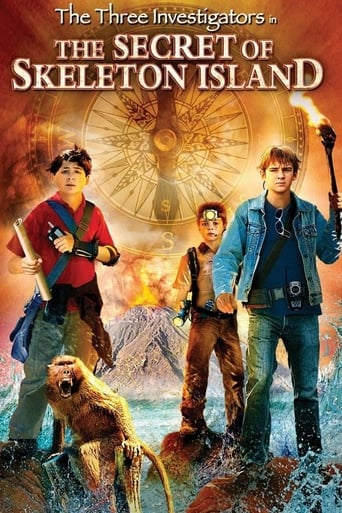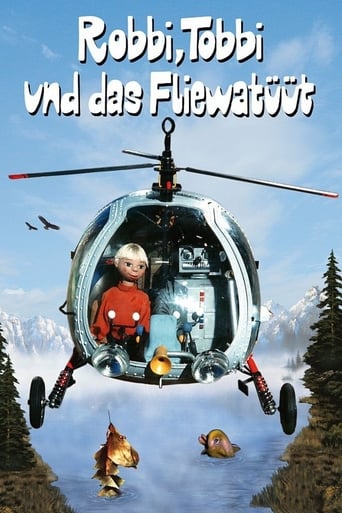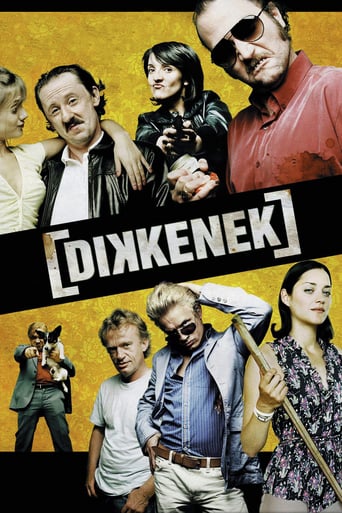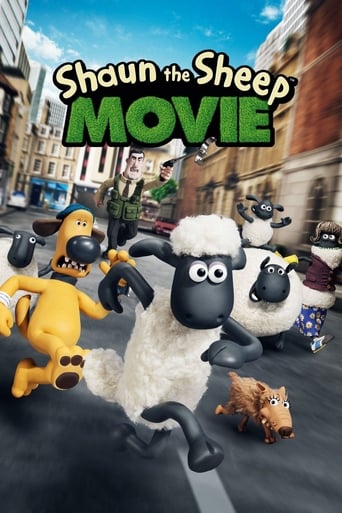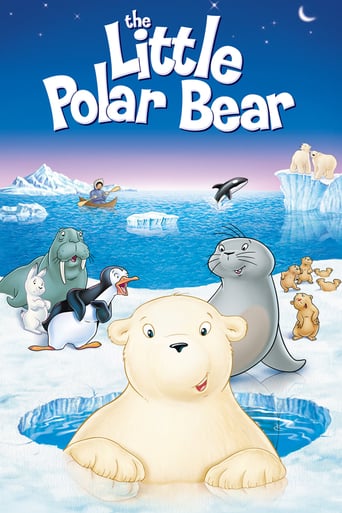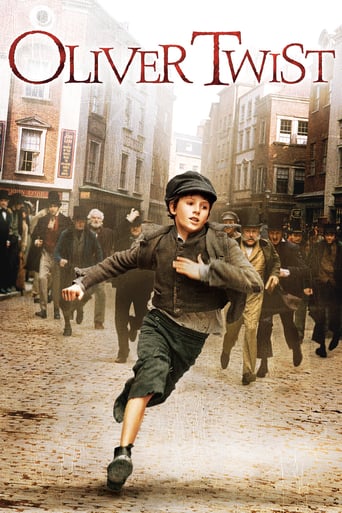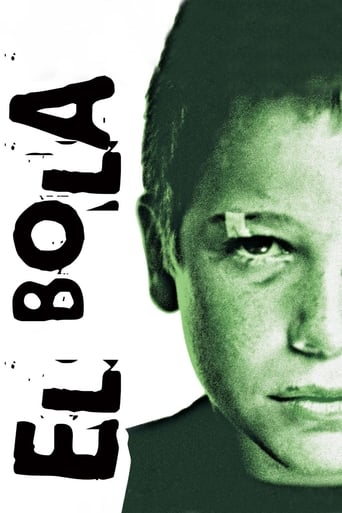
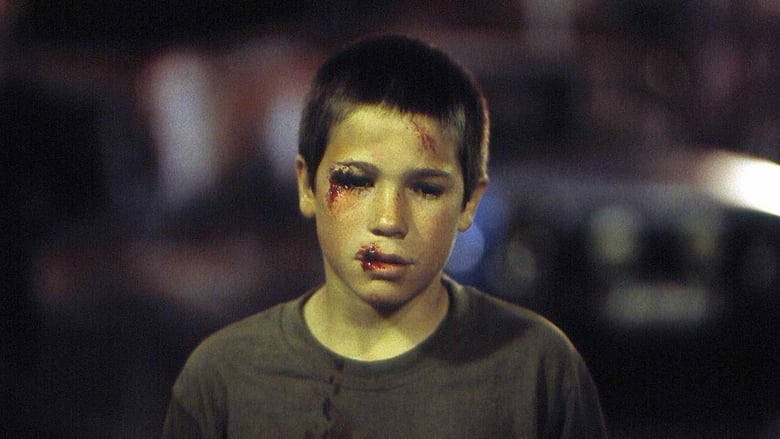
Pellet (2000)
El Bola is a 12-year-old boy raised in a violent and sordid environment. Embarrassed by his family life, he avoids becoming close to classmates. The arrival of a new boy at school changes his attitude towards his classmates and friendship. The heart of the story is the change in El Bola's life, at almost all levels, after befriending this new classmate.
Watch Trailer
Cast
Similar titles
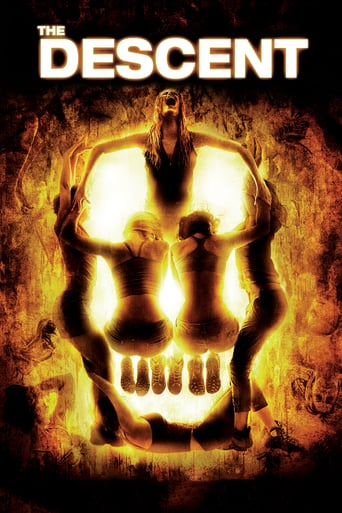
Reviews
Overrated
everything you have heard about this movie is true.
A different way of telling a story
True to its essence, the characters remain on the same line and manage to entertain the viewer, each highlighting their own distinctive qualities or touches.
At a deposition, the son stares into the whites of the camera and informs on his father. When we first meet Pablo(Juan Jose Ballesta), he's playing a daredevil game by the track with some other boys. The possibility of a miscalculation with the oncoming train and their mad dash across the railway is what concerns us. That's what we fear may kill the boy, not his father. In the hardware store, Jose(Alberto Jiminez) talks to his blood employee with a terseness that puts a damper on the moment, but the boy seems to have grown accustomed to these severe exchanges. Pablo walks and talks around the store freely enough, without a quiver or hitch in his voice, or an eggshell in sight. Pablo doesn't act like a child who's been burned with cigarettes and forced to drink his own urine. In the deposition, he lies about his brother; the son that dad loved the best, the ghost that Pablo competes against. He tells the camera "that I should have died, and not my brother," which suggests the father's golden boy didn't perish before Pablo was born, contrary to what he told his schoolmate Alfredo(Pablo Gallan).In essence, Pablo is talking directly to the audience, his witnesses to the brutal beating that Jose dispenses after the boy lies about his whereabouts for a second time. Playing on our sympathy, Pablo makes claims against his father that "El Bola" fails to support, as evidenced by the boy's relative ease around his father. With great subtlety, when the fourth wall is broken, "El Bola" transforms Pablo into a narrator, a fallible one, because the father seems more like a taskmaster than an incorrigible child abuser.Perhaps "El Bola" was too overly concerned with presenting the father as a flawed man, a man still grieving over the death of his first-born, rather than an irredeemable monster like the Robert DeNiro character in "This Boy's Life". If he purportedly tortured his son with lit cigarettes and ridiculed him with names such as "idiot" and "f*****", however, Pablo wouldn't think twice about challenging the authority of such an unpredictable parent with a tendency to shoot first and ask questions later. At the dinner table, Pablo's reaction time is somewhat slow when he's asked to refrain from playing with a ball; and at the front door, his conversation with a friend continues long after he's told to either come inside, or continue gabbing out in the hallway. This show of defiance suggests that a stern lecture, not horrifically violent retribution is the more likely end result for such insubordination. Even the film itself, on a subconscious level, knows that Pablo's father is hardly the man that Pablo describes to the off-camera interviewer. When Jose approaches Alfredo's family to help him search for his runaway son, there's no accusatory outburst about the bruises on Pablo's face and body. If somebody felt that their son's friend was a battered child, the father wouldn't be accord him any cordiality or unconditional respect as they patrol the streets at night in the tattoo artist's car(Alfredo's father).But "El Bola" wants to end on a stirring note, so out from the mouth of a babe, pours out all this stored-up vitriol towards the man who always treated him like a consolation prize. If the film truly believes that Pablo's testimony is factual, then it misses the mark, because there's not enough supporting evidence to back up the boy's claims. The cynic who understands that children lie to get what they want(Pablo probably wants to live with Alfredo's family) will find "El Bola" more rewarding than the viewer with a bleeding heart(like the person who cries out "but what about the children?" as a response to any social ill). Be a cynic: be aware that "El Bola" switches from third-to-first-person narration when it matters the most.
Hi all, I've just presented this film to my students, I'm a lecturer at Purdue University(IN) and I read the comments here. I have to say that many people are completely wrong when they think that el Alfredo's parents are homosexual. You have to be aware that Spanish language is quite genuine when talking about curses. The fact that Alfredo's father calls his friend "maricón" (literary, "faggot") does not imply AT ALL that he is actually homosexual, it's only a very informal way of addressing a friend, you have to be aware that it is a very different culture. When I read that someone wrote that he found very strange that Alfredo's parents were homosexual, it called my attention and I wanted to double check that, because I really know Spanish culture and society and you can be sure that that is not normal there in Spain so far. Well, I just wanted to point that out. Thank you very much.
One of the criticisms lodged against this moving film is that towards its end the actions of the adults are not believable. I actually found it very believable. The best friends' parents are advised that if they do not either return the abused boy to his parents or go to the police they could be accused of kidnapping, or even worse, the father could say that when his son left the house he was fine, and it was they who inflicted the marks on his childs' body. shocking and unjust as this may seem, the reality is - and, as a victim of child abuse, i feel quite qualified in saying this - that even though the law states otherwise, children are often powerless to fight abuse. For instance: once when I was beaten by my stepfather I ran to the police station and told them what had happened. The police called my parents, asked them if what I was saying was true, my staepdad told them i was making up stories, that i had fallen off my bike and was lying because I was angry about having to do my homework. The police took me home and I was promptly beaten for almost getting him into trouble. So... in Pellet, the best friends fathers fears of legal repercussions for intervening were actually, in my opinion, justified.
I really enjoyed most of this movie. I liked the characters enough to almost believe that one of the teenagers had a gay man as his father and a lesbian woman as his mother. I also cared about the kids. But this movie just ends... w/o closure and that really annoyed me. So, what was a 10/10 or 9/10 ended up a 7/10 due to the abrupt ending. Still, it is sincere and honest. But I really wanted to know what happens next.

